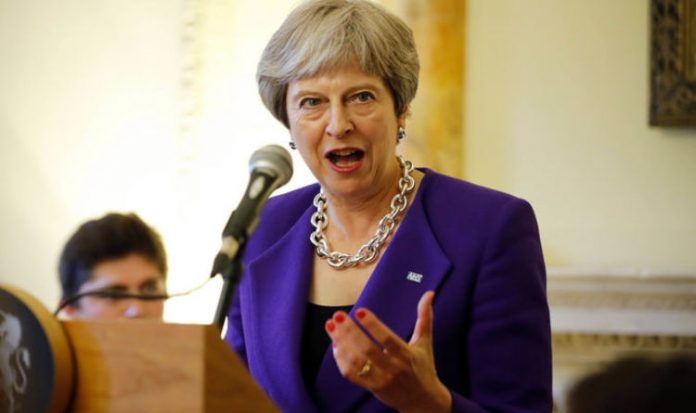[ad_1]
The proposed “facilitated customs arrangement” was announced a day ahead of crunch talks at Chequers where ministers will thrash out details for Monday’s White Paper publication.
Eurosceptics, led by Jacob Rees-Mogg, have threatened to boycott any soft Brexit deal which would see a continued EU alignment on rules for customs and tariffs.
Mr Rees-Mogg slammed Mrs May’s “foolish policy” as “not Brexit”, saying it would stop the UK being able to trade deals freely with other countries.
He said: “If the agreement from the Cabinet is that we will give the EU £39 billion merely on good faith of the EU’s negotiating a trade deal, I will vote against that. I don’t think I can be clearer than that.”
What is Theresa May’s third way?
The controversial third way is an attempt by the prime minister to solve the niggling issue of custom arrangements on the Irish border.
The compromise is intended to appease divisions between Brexiteers and Remainers.
Brexiteers favour a “maximum facilitation” which would drastically cut custom controls between the EU and UK by moving tracked goods electronically in pre-cleared transactions without having to pay duty every time they cross the border.
Supporters say it would guarantee the UK can sign deals with non-EU nations as they no longer have to comply with EU tariffs.
But Remainers favour a new customs partnership, which effectively would see the UK collecting tariffs for goods en route to the EU and vice-versa.
If the UK’s set tariff is lower than that of the EU’s, then companies would get the difference refunded but it would allow the removal of a hard border
Under Theresa May’s new “facilitated customs arrangement”, the UK would have the freedom to set its own tariff rates.
Technology will be used to decided whether the goods end up in Britain or the European Union, deciding whether UK or EU tariffs are paid.
British tariffs would apply to 96 percent of imports, according to sources.
The third way will see the UK maintaining “full regulatory alignment” with Brussels, meaning the UK will closely mirror EU regulations, an idea already rejected by Brexiteers.
At Prime Ministers’s Questions yesterday, the prime minister said she would ensure “we are out of the customs union, that we are out of the single market, that we are out of the jurisdiction of the European Court of Justice, we are out of the Common Agricultural Policy, we are out of the Common Fisheries Policy, we bring an end to free movement, we take control of our borders, we have an independent trade policy”.
But immigration remains a sticking point in Brexit negotiations.
Brussels has previously insisted the UK cannot keep access to the single market unless it continues free movement.
Arrangements have yet to be detailed in full and it is uncertain whether an agreement will be reached with ministers or the EU.
Mrs May is in Berlin today meeting with Chancellor Merkel, where Brexit will be one the topics on the table.
[ad_2]







